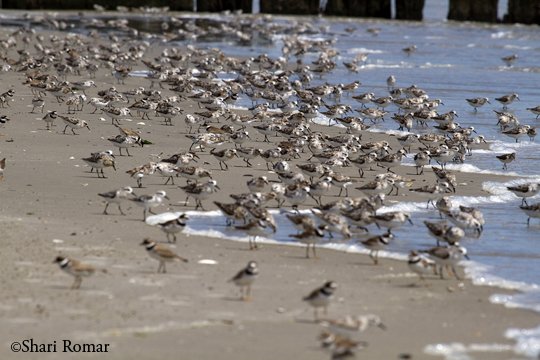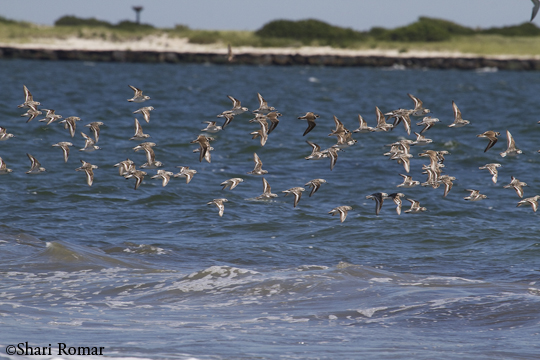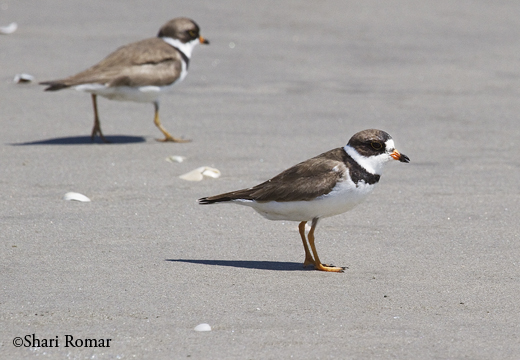A Peep Show!
No....(blush)....not that kind! I'm talking about those marvelous little shorebirds called Peeps that are now converging on our beaches as they start fall migration.
Yes, their fall migration begins when we're still suntanning and barbecuing. Though some shorebirds spend the summer in our area, like Piping Plovers, many head far north to the tundra to breed, which means they need to high-tail it out before the cold weather sets in.
Disappointed to not make back to the Arverne Piping Plover Nesting Area later in July to check on the fledgling Piping Plovers (lousy heat wave...), I quickly became distracted by the multitude of scurrying little shorebirds that arrived on my visit last week. They're charming to watch from a distance, but learned -- as I settled into a tiny collapsible chair right at the surf -- that they are remarkably tame.
First came the Semipalmated Sandpipers who took sideways steps closer as they rushed back and forth from advancing and retreating waves, then the Semipalmated Plovers followed. What I believe were Sanderlings inched over but weren't interested in getting too close. Most timid were Ruddy Turnstones, sticking close to the rocky bulkheads.
Yet I don't believe they were getting closer for my benefit -- the shoreline was full of little aquatic worms that they plucked out of the sand, while the Turnstones were gleaning some sort of minute creature from the seaweed affixed to the rocks.
Technically, Peeps are those birds in the Calidris genus. Those you might see in our region are:
Red Knot (Calidris canutus)
Sanderling (Calidris alba)
Dunlin (Calidris alpina)
Semipalmated Sandpiper (Calidris pusilla)
Least Sandpiper (Calidris minutilla)
However, I've noticed that other shorebirds are lumped into this group:
Black-bellied Plover (Pluvialis squatarola)
Piping Plover (Charadrius melodus)
Semipalmated Plover (Charadrius semipalmatus)
Killdeer (Charadrius vociferus)
Greater Yellowlegs (Tringa melanoleuca)
Lesser Yellowlegs (Tringa flavipes)
Willet (Catoptrophorus semipalmatus)
Ruddy Turnstone (Arenaria melanocephala)
Some, like the Sanderlings, will make their winter home in our area, but many will head farther south -- perhaps just as far as the Carolinas and Florida (Semipalmated Plover, Greater Yellowlegs, Piping Plover) or may journey all the way down to South America (Ruddy Turnstone, Red Knot, Semipalmated Plover).
Welcome and safe travels, dear Peeps!









